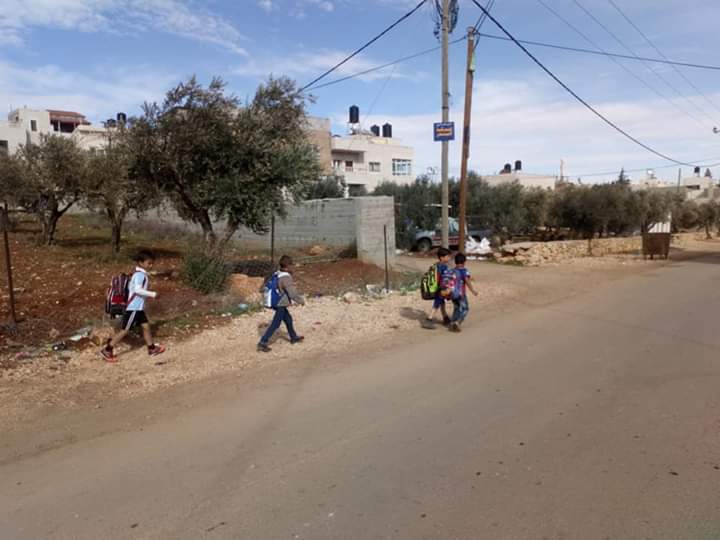Tag: Shilo Settlement
-
Settler attacks increase at Al Mughayyir
27th November 2018 | International Solidarity Movement, Ramallah team | Al Mughayyir, Ramallah, Occupied Palestine The village of Al Mughayyir sits 27 miles north of Jerusalem. Sitting above is the settlement of Shiloh, more than a quarter of which is constructed on Palestinian land, the locals say. An elder from the village reports that the…
-
Jalud settler attack: ‘Imagine if we were not in our homes, they would have destroyed them’
13th August 2013 | International Solidarity Movement, Nablus Team | Jalud, Occupied Palestine Yesterday morning, 12th August, settlers from the illegal settlements of Esh Kodesh and Ahiya attacked several houses in the village of Jalud and set land on fire, including ten olive trees. On the morning of the 12th of August at 11:30, four…
-
Land grab in Qaryut; residents fear illegal settlement expansion
16th July 2013 | International Solidarity Movement, Nablus Team | Qaryut, Occupied Palestine On the 3rd of July 2013, settlers from the illegal colony of Shilo bulldozed land belonging to Qaryut, destroying around two hundred recently planted olive trees. Citizens of Qaryut are now concerned that new houses for the illegal settlement are being built…

